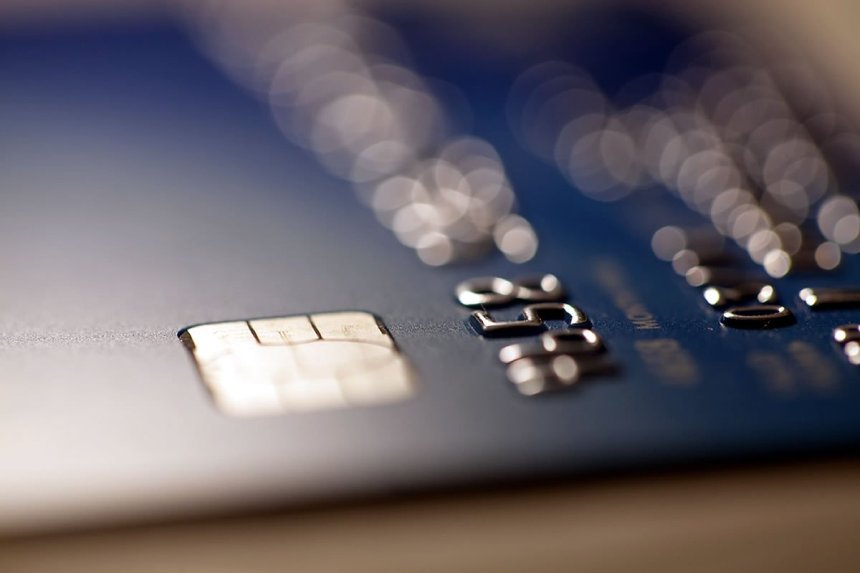To the dismay of decentralists, the relationship between traditional institutions and the crypto world has always been one-sided, with the former group consistently having the upper hand over the latter. However, with the arrival of crypto-backed debit and credit cards, some are claiming that the tables are poised to turn.
Crypto.com, Changelly Take On Cryptocurrency And Fiat Worlds Simultaneously
On Monday, Prague-based Changelly, a popular “instant” cryptocurrency exchange, recently revealed that entered a strategic partnership with Simplex, a global fintech payment processor, to offer fiat-to-crypto support for Ripple’s XRP. Now, users of the international platform will be able to purchase XRP with their credit card. This near-instant service doesn’t come cheap, however, as the two partners reportedly charge 10% per fiat transaction — essentially an arm and a leg.
⚡️Big news for #Ripple fans! You can seamlessly buy $XRP on Changelly via our partner @SimplexCC from now on.
Give it a shot 👉 https://t.co/ETBVJSIj2y@Ripple @RippleFeed #XRP #simplex #cryptocurrency #blockchain pic.twitter.com/IKOmiXY2Gx— Changelly (@Changelly_team) October 22, 2018
Regardless, many investors, specifically XRP advocates, welcomed the move with open arms, as viable fiat on-ramps are few and far between. Still, due to the lack of fiat off-ramps, many consumers were left asking — when can we finally start using crypto assets in our day-to-day?
In early-September, NewsBTC reported that Hong Kong-based Crypto.com, formerly known as Monaco, was slated to launch its Visa card program to upwards of 100,000 consumers worldwide. The program, which allows users to use Bitcoin, Ethereum, Litecoin, Monaco, and Binance Coin to purchase real-world items in U.S., Singapore, and Hong Kong dollars, was set to launch in Singapore, before expanding across the globe.
Now, after months of development and rumored beta tests, Crypto.com has revealed that it will be shipping MCO Visa Cards to clients in Singapore.
https://twitter.com/cryptocom/status/1054221061665972224
The program, which offers crypto cashback, travel benefits, free ATM withdrawals, and tap-to-pay functionality, somehow comes in at a staggering $0, which is likely a price point that had (and still has) consumers clamoring. Kris Marszalek, co-founder and CEO of Crypto.com, expressed his excitement for his firm’s foray into the crypto-friendly city-state of Singapore, stating:
“We are thankful for the support of all our partners and our community. During this process, our team has grown tremendously and worked incredibly hard to achieve this milestone.”
Marszalek later added that the launch of the MCO card program is an “important step” forwards in the startup’s mission and ambition to accelerate the global adoption of crypto assets.
Sadly, no details were revealed pertaining to the global roll-out of the card program, but it is likely that Crypto.com’s top brass is eyeing the Hong Kong market, which is widely regarded as a cryptocurrency and blockchain capital of the world.
Crypto-backed Cards Could Be The Future
The allure of blockchain-based assets has always been that eventually, individuals will be able to disconnect themselves from centralized intermediaries, which hamper the consumer experience in terms of cost and efficiency. While this decentralist utopia is undoubtedly on the cards, as it stands, this industry is lacking the infrastructure required to fully separate itself from the traditional banking world.
Save for Bitcoin ATMs and peer-to-peer trades, which is essentially as decentralized as fiat-to-crypto transactions get, fiat-supported exchanges aren’t much better than the banks that hold their funds. And unfortunately, the issue is much worse on the other side of the equation, as crypto-to-fiat transactions are cumbersome, slow, and require intervention from a number of traditional institutions.
But, what the cards from startups, such as Crypto.com and Revolut, are trying to do is to solve the latter dilemma. Through partnerships, innovation, and pure, unbridled talent, these startups are starting to revolutionize how consumers interact with fiat and cryptocurrency simultaneously, bypassing issues that still make decentralists wince.
While Crypto.com’s MCO Visa, or Revolut’s Metal, isn’t decentralization at its peak, these two programs are important steps towards a society where cryptocurrencies aren’t stigmatized assets.
Featured Image from Shutterstock
